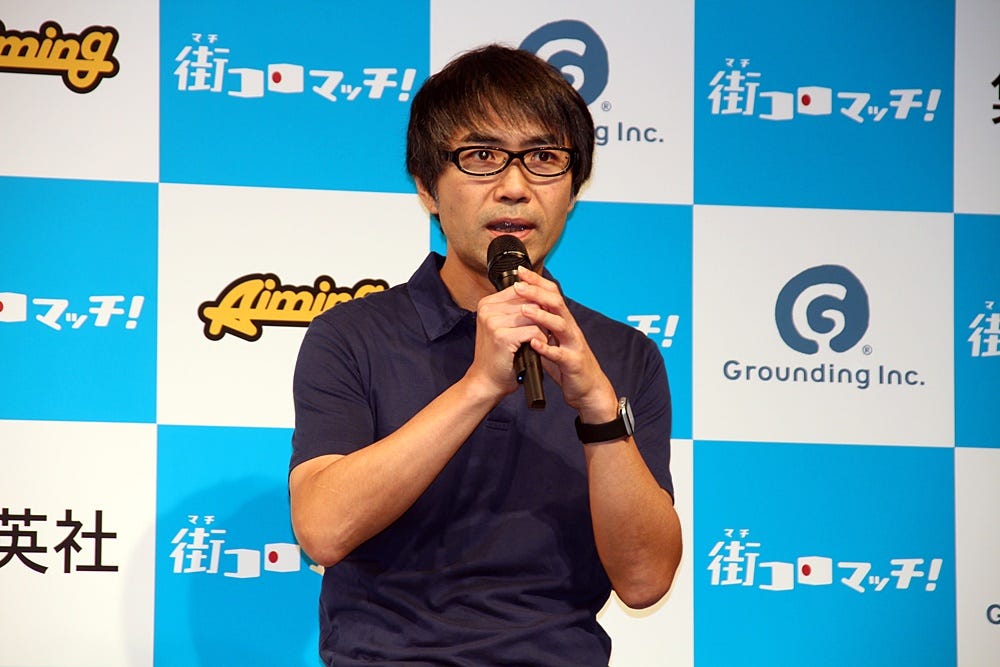Opposition to consumption tax reform grows
Plus: Kadokawa plans a marketing presence push in North America; Shueisha promotes former Shonen Jump chief editor; Innovations drive digital manga growth; and more
This is your weekly Animenomics briefing, covering the business of anime and manga. Today is Wednesday, September 6, 2023.
In case you missed it: Japan has qualified for the 2024 Olympics men’s basketball tournament, drawing the attention of manga author Takehiko Inoue, whose Slam Dunk series inspired a generation of basketball players in Japan and around Asia.
Activists step up opposition to consumption tax reform

Opponents of a new invoice system for reporting consumption tax in business transactions are ramping up activities to raise public awareness as the new rules are set to take effect on October 1.
Driving the story: Stop Invoice delivered a petition on Monday, signed by 361,171 individuals, calling on the Ministry of Finance and the National Tax Agency to pause or cancel the system’s implementation.
The group is supported by influential voice actors and freelance workers in the anime and manga industry.
What’s at stake: A consumption tax exemption for businesses with annual sales of less than ¥10 million (US$70,000) is going away, impacting the vast majority of animators, manga artists, and voice actors.
Critics say the elimination of the tax exemption means small businesses must begin issuing invoices for services rendered, placing an undue administrative burden on already-slim margins.
The Stop Invoice coalition says that 20 to 30 percent of businesses in Japan’s entertainment industry, such as anime and manga, would consider closing if the invoice system is implemented.
Where things stand: Japan’s government and the ruling Liberal Democratic Party have shown no signs that they would consider postponing implementation.
“Since the smooth introduction and establishment of the invoice system is of utmost importance, we will respond firmly in cooperation with the relevant ministries and agencies based on the instructions of the Prime Minister,” finance minister Shunichi Suzuki told reporters on Monday.
Kadokawa plans marketing push in North America

Kadokawa put on a strong showing at the Los Angeles Anime Expo in July with a large exhibition of anime titles and a dedicated event for fans of Bungo Stray Dogs, a sign that the publishing conglomerate is making investments to strengthen its marketing presence in North America.
Why it matters: Kadokawa’s annual integrated report, published earlier this month, puts a spotlight on the company’s overseas business.
The share of revenues from overseas markets grew to 20.5 percent for the fiscal year ending March 2023, up from 13.1 percent in the previous year.
Driving the story: Anime Expo’s attendance impressed Kadokawa’s chief anime officer Takeshi Kikuchi, who noted that the large number of attendees bringing their own children means anime has gained widespread acceptance.
While audiences now know more anime titles than ever before, Kadokawa believes it can stand out from competitors by pushing its own marketing messages.
Yes, but: Kikuchi points out Japanese publishers and and rightsholders have yet to become household names in North America as audiences are more familiar with the streaming video platforms that distribute their content.
Zoom in: Kadokawa intends to use Anime News Network, the English-language news platform it acquired last year, as an avenue for direct advertising.
Kikuchi also mentions the company’s Newtype anime magazine as another avenue, but the market for this strategy is unclear as Newtype has not had an English-language edition since 2008.
The other side: Anime News Network publisher Christopher Macdonald has previously stressed that the website’s news staff will maintain editorial integrity and independence despite the acquisition.
The bigger picture: Chief global officer Takashi Sensui explains that Kadokawa plans to use Anime News Network and its other platforms like BookWalker to spread awareness of content made by overseas creators.
“Up until now, our approach has been to spread Japanese content to markets around the world, ‘from Japan to the world’. The next step is ‘from the world to the world’,” says Sensui.
Clippings: Shueisha promotes Shonen Jump chief editor

Manga editor Yoshihisa Heishi was promoted by Shueisha to managing director, replacing its long-time manga division leader Masahiko Ibaraki. During Heishi’s tenure as Weekly Shonen Jump editor-in-chief, the magazine launched popular manga titles like Demon Slayer, Haikyu!!, and My Hero Academia. (Shinbunka Online)
The Visual Industry Promotion Organization, a non-profit group sponsored by the Japan Business Federation, has invited 27 Chinese video game and animation companies for a business exchange event in Tokyo this month with their Japanese counterparts. (Press release)
Shueisha’s Shonen Jump+ digital manga platform has launched World Maker, an app that helps aspiring manga authors to create storyboard drafts (also called a “name”) for their story ideas. The platform’s editors are also holding a contest for story submissions through October 1. (Official website)
Oshi no Ko’s popularity among Japanese audiences in their teens and twenties is second only to Spy × Family, according to an intellectual property survey done by marketing research firm Intage in May. (Toyo Keizai)
E-book executive explains digital manga sales growth
“I believe one of the main reasons [for the growth in digital comic sales] is innovation in the business model of digital comic distribution.”
— Shin Niina, vice president and chief operating officer of e-book distributor Media Do
Context: Writing on behalf of the Japan Electronic Publishing Association, Niina responds to new publishing industry data for the first six months of 2023.
The Research Institute for Publications found that digital manga sales grew 8.1 percent year-over-year while other publishing industry segments declined.
Between the lines: Niina dismisses the common explanations that hit titles like Demon Slayer, increased demand during the COVID-19 pandemic, and more anime productions adapted from manga have accelerated digital manga sales.
“Simply saying that paper comics have been replaced by digital comics does not explain the 1.53-fold increase in the overall [comics] market,” he wrote.
Instead, Niina credits the success of digital distribution tactics like bulk purchase discounts, sales of individual manga chapters, aggressive pricing, and free chapter promotions.
More recent digital distribution formats gaining populairty include all-you-can-read subscription services, manga chapters that can be read for free when you wait, and vertically-scrolling titles (webtoons).
We’re glad to see you again after an extended break. Animenomics is an independently-run and reader-supported publication. If you enjoy this newsletter, consider sharing it with others.




